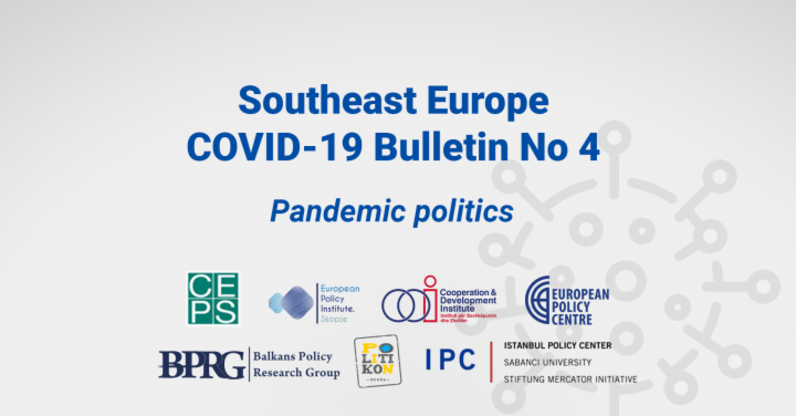In this 4th and final Bulletin before the summer, we focus on the latest developments with regard to the Covid-19 pandemic in the region, and the impact it has had on the overall political environment within each country, many of whom are facing impending electoral challenges.
The deterioration in democratic standards and delays in EU related reforms as the pandemic unfolded throughout the region, in countries where institutions were already weak, should be a cause for concern for the EU as it pursues its enlargement agenda.
With the postponement of the European Commission’s annual enlargement communication with accompanying country reports to the autumn, this deterioration is likely to continue unchecked without more rigorous monitoring and enforcement actions from the European Union. In this respect, the forthcoming rule of law monitoring reports from the European Commission will be a useful indicator.
Epidemiological evolution
There has been a marked increase in the infection rate in almost all the countries of the region, with the most alarming being in North Macedonia, where testing capacity also remains limited. The main exception is Montenegro where the situation remains stable despite two new cases of infection after some weeks without any.
Unwinding strategy
Despite the increase in infections, the restrictions and other exit strategy measures continue to be eased or lifted. However, increasing criticism has being leveled at governments for failing to exercise proper controls in social distancing and hygiene rules, and in some cases allowing large gatherings to take place, such as a football match in Serbia attended by 25,000 people. Undue speed in lifting restrictions such as in Kosovo and in Turkey has also been the subject of criticism.
Domestic politics
There is no doubt that the coronavirus pandemic has had dramatic consequences for the countries of the region, not only in terms of devastating economic impact but also in relation to a serious deterioration in proper functioning of the institutions and democratic standards.
Even allowing for the weak institutional system in place in most of the countries prior to the pandemic, as reflected in international indicators such as Freedom House, with Turkey being the worst case, the unfolding pandemic has seen a further decline in democratic standards and an increase in authoritarian behaviour of the political leadership.
With the exception of North Macedonia where a technical government is in place and Parliament suspended due to early elections, decision making in relation to the pandemic lacked transparency and democratic accountability. Parliament was often ignored as was predictably the case in Turkey, or only consulted after decisions were made, as was the case in Serbia. In Albania, a worrying practice of adopting tailor-made laws continued.
Lack of transparency in public procurement of medical equipment and other expenditure relating to the pandemic has increased the potential for corruption in a number of countries.
Both media and civil society organisations have suffered from this deteriorating climate, with harassment and even detention of journalists in Serbia, fines against an opposition figure in Bosnia and Herzegovina for publicly speaking out on the lack of personal protective equipment, and the withdrawing of funds already allocated to civil society organisations in the case of North Macedonia.
The impending elections in several countries (Serbia on 21 June, North Macedonia on 15 July, Montenegro in early autumn), not to mention the political uncertainty in Kosovo following another change in government, have also played their part in exacerbating domestic politic tensions with governments being criticized for prioritising electoral considerations instead of managing the health crisis.
Progress in EU related reforms has inevitably suffered. However this rather bleak picture is brightened somewhat by success in Bosnia and Herzegovina in finally resolving the long standing dispute over elections in Mostar, thanks to EU/US mediation, and the appointment in Albania of the chief negotiator and the negotiating team for the future EU accession negotiations.
Read the full bulletin here.
This publication is prepared within the framework of the CEPS-led ‘3dCFTAs’ project, enabled by financial support from Sweden.

